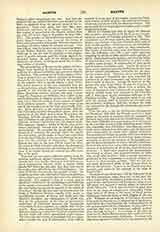

Martini, ANTONIO, Archbishop of Florence, Biblical scholar; b. at Prato, in Tuscany, April 20, 1720; d. at Florence, December 31, 1809. Having received holy Orders, he was appointed director of the Superga College at Turin. Cardinal delle Lanze, knowing that Benedict XIV, then pope, desired a good version of the Bible in contemporary Tuscan, urged Martini to undertake the work. The latter began a translation of the New Testament from the original Greek, but soon found this labor, in conjunction with his duties in the Superga, beyond his physical strength. He accordingly resigned the directorship and accepted from King Charles Emanuel of Sardinia a state councillorship together with a pension. In spite of some discouragement consequent upon the decease of Benedict XIV, Martini persevered, completing the publication of the New Testament in 1771. In his work upon the Hebrew text of the Old Testament, which followed, he was assisted by the Rabbi Terni, a Jewish scholar. The whole work was approved, and Martini personally commended, by Pius VI, who made him Archbishop of Florence in 1781. As archbishop he succeeded in partly foiling an attempt to publish a garbled edition of his work, and a third authorized edition issued from the Archiepiscopal Press of Florence in 1782-92 (see Versions of the Bible).
E. MACPHERSON

